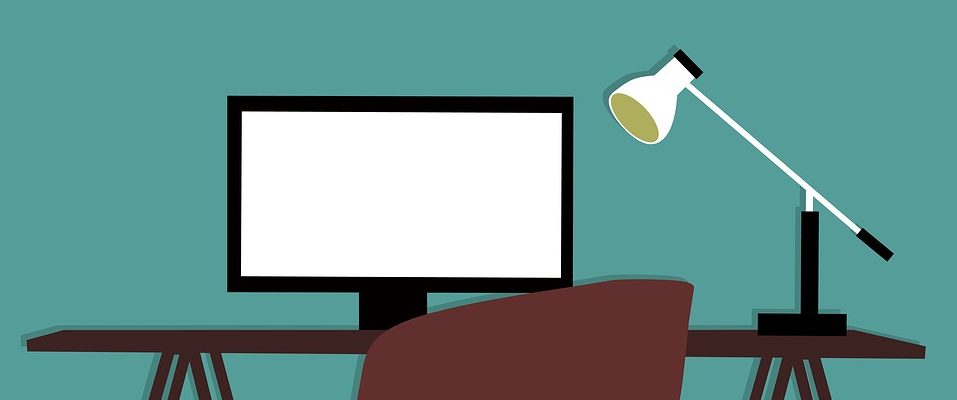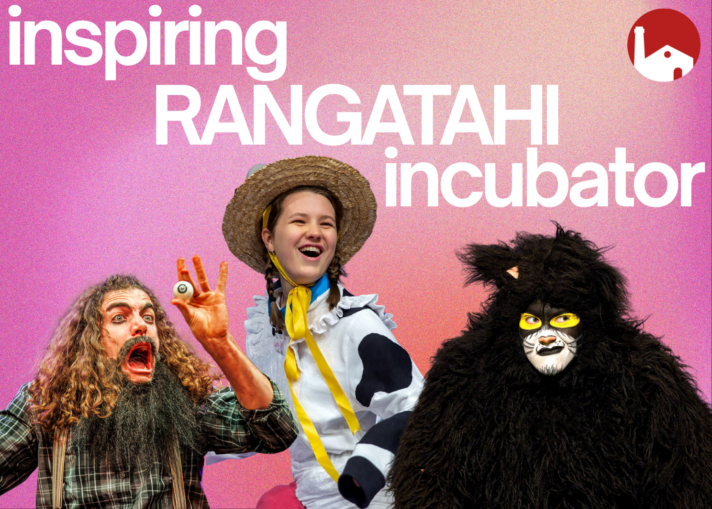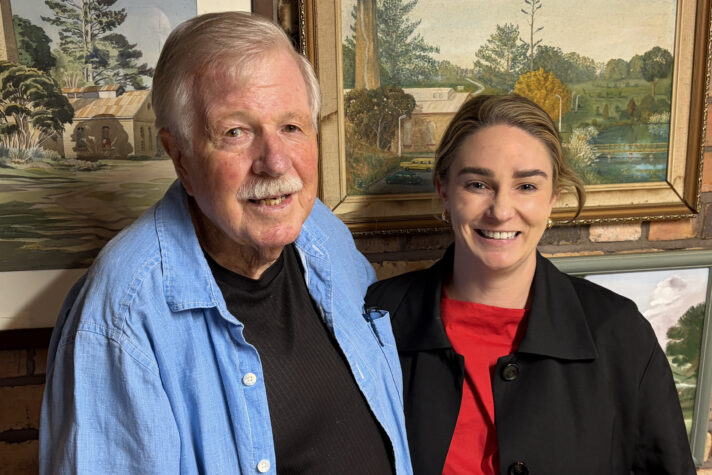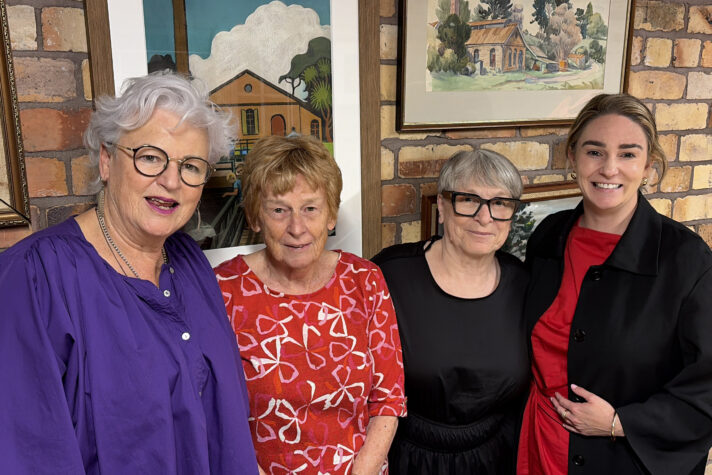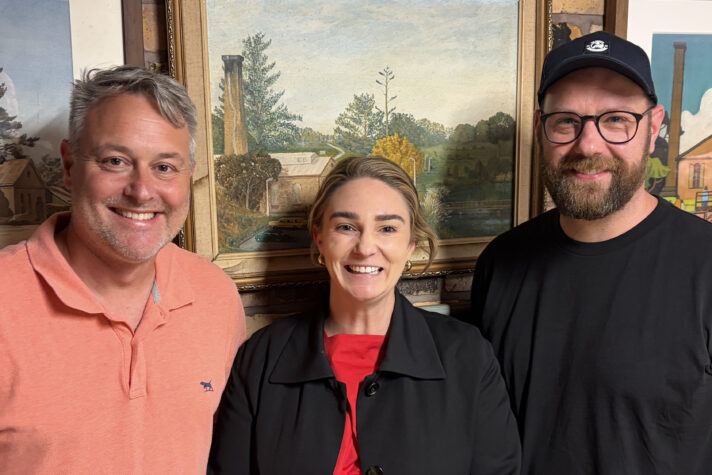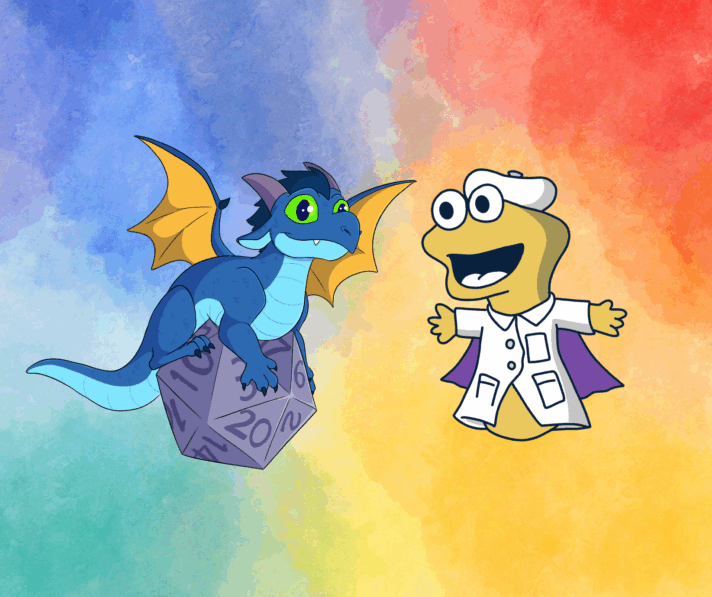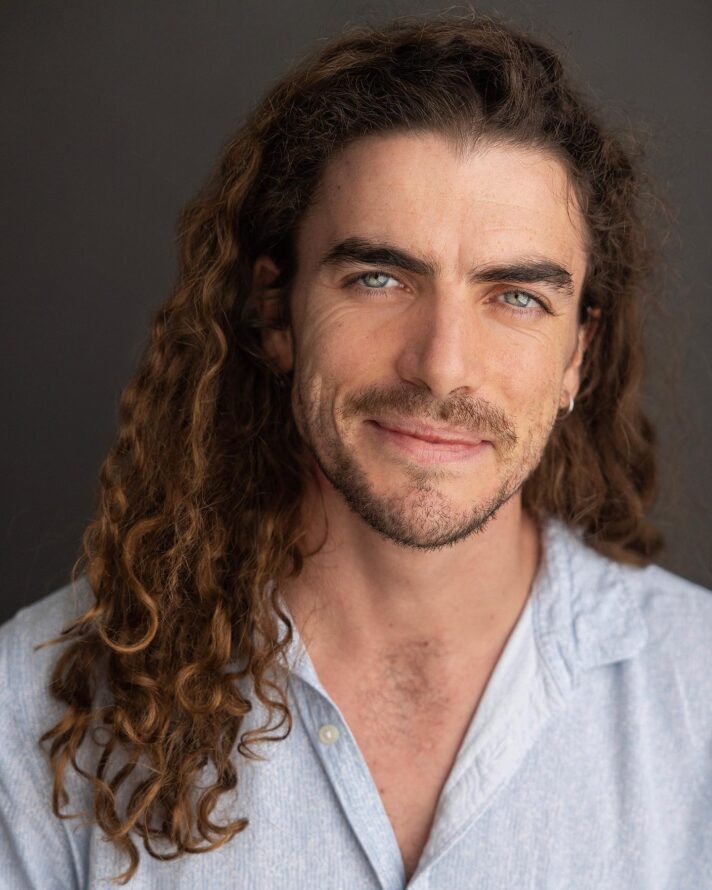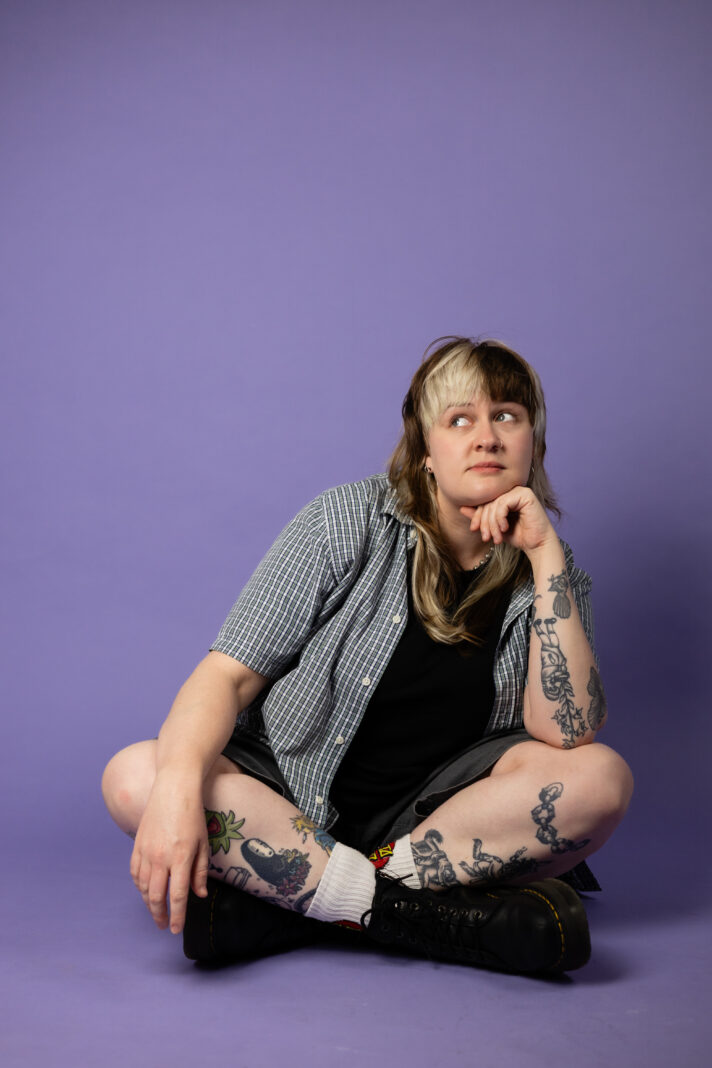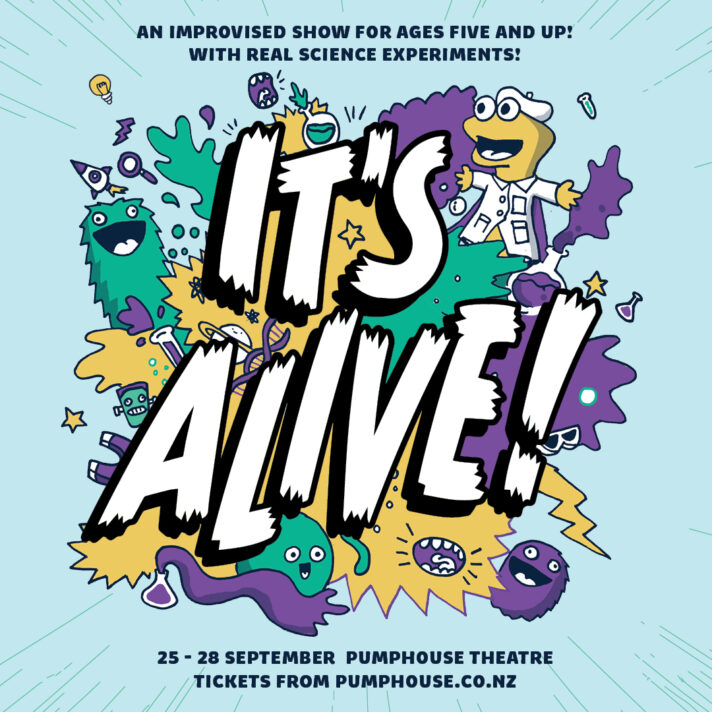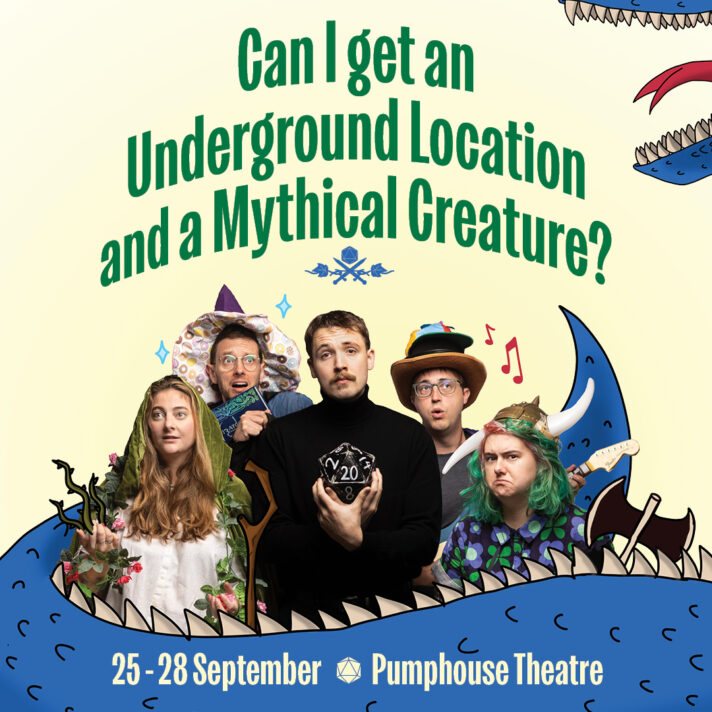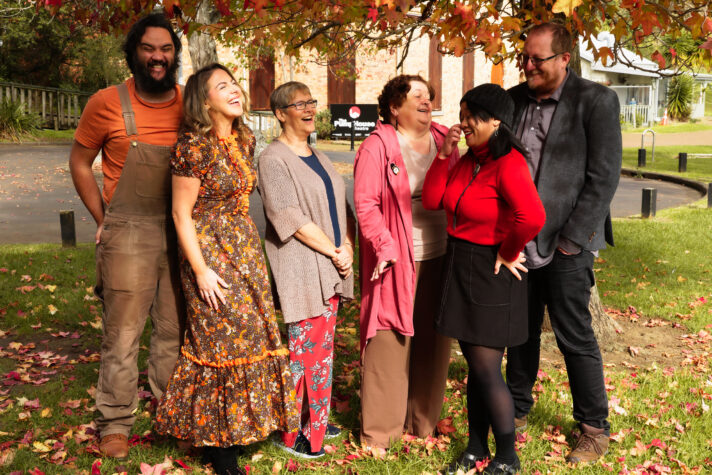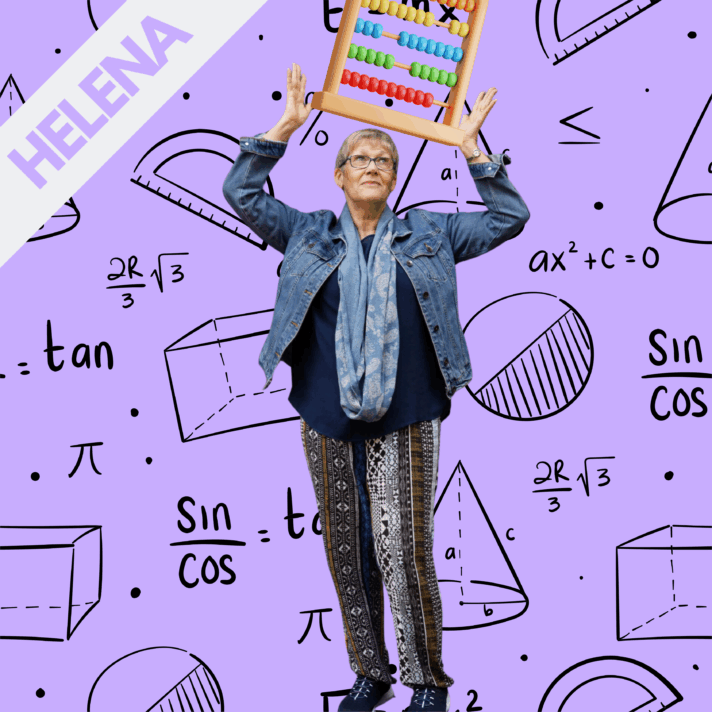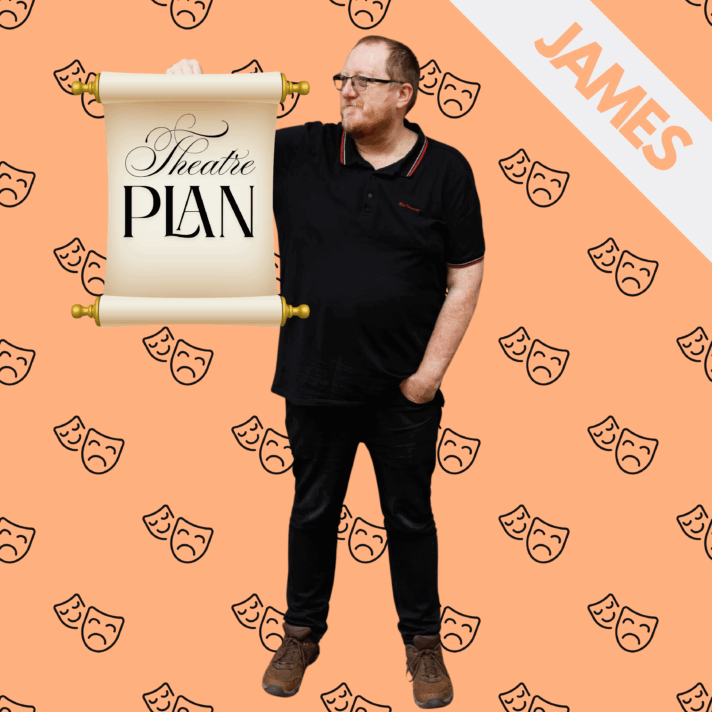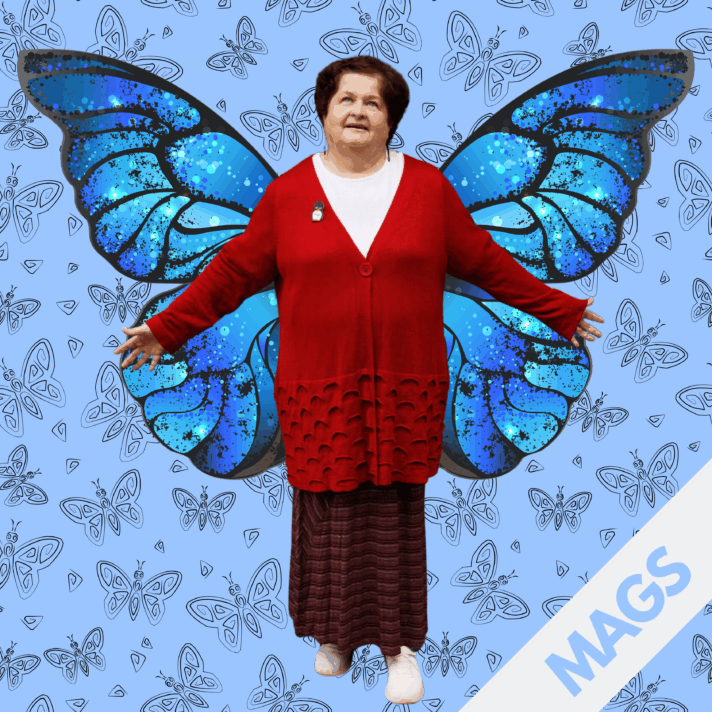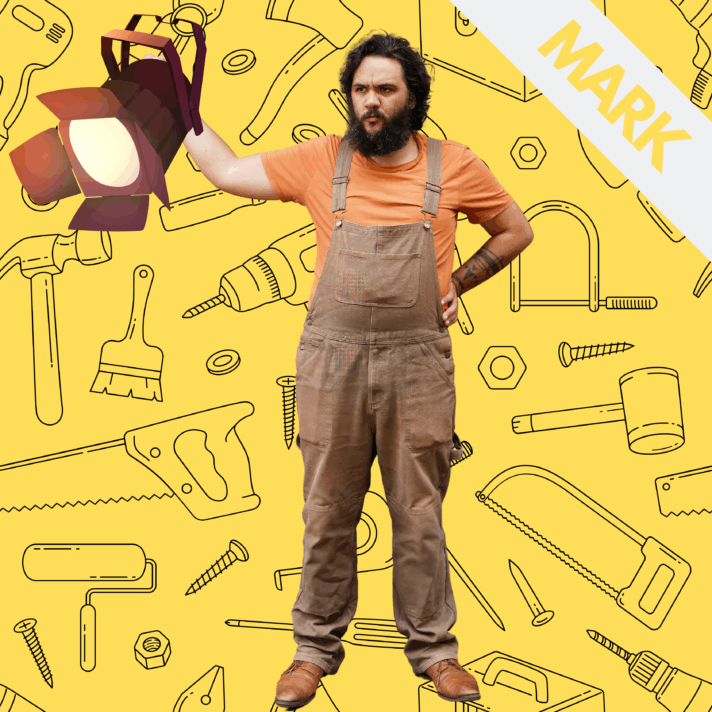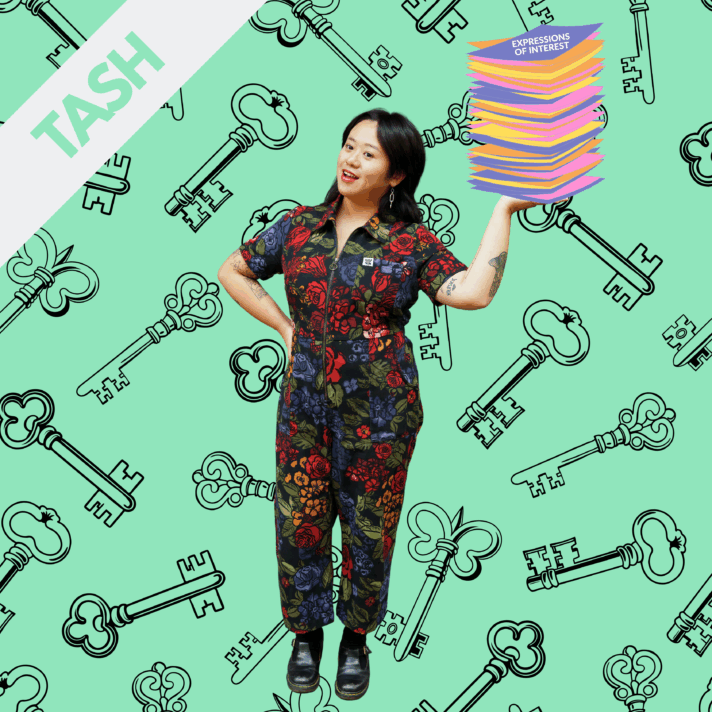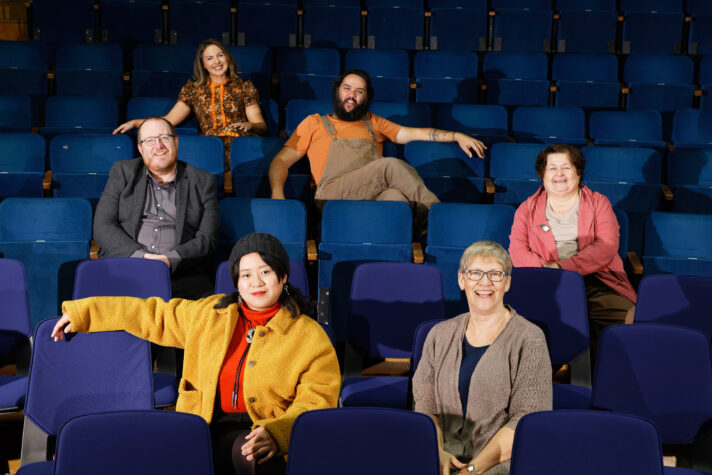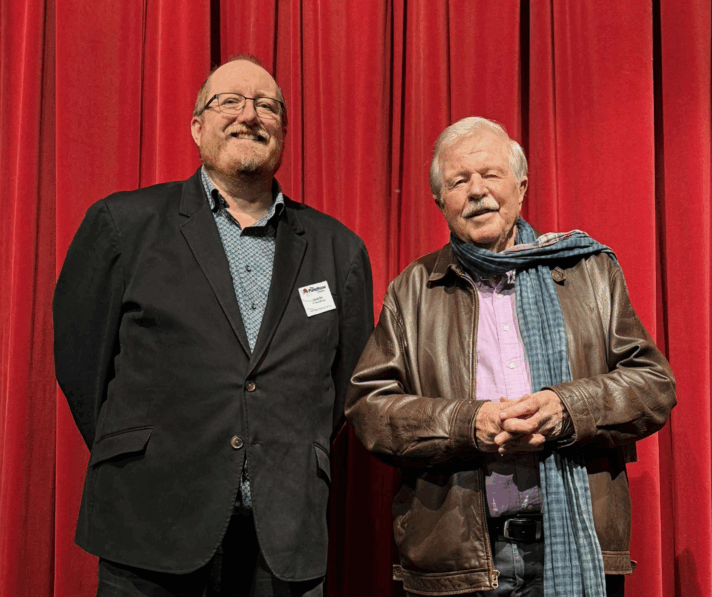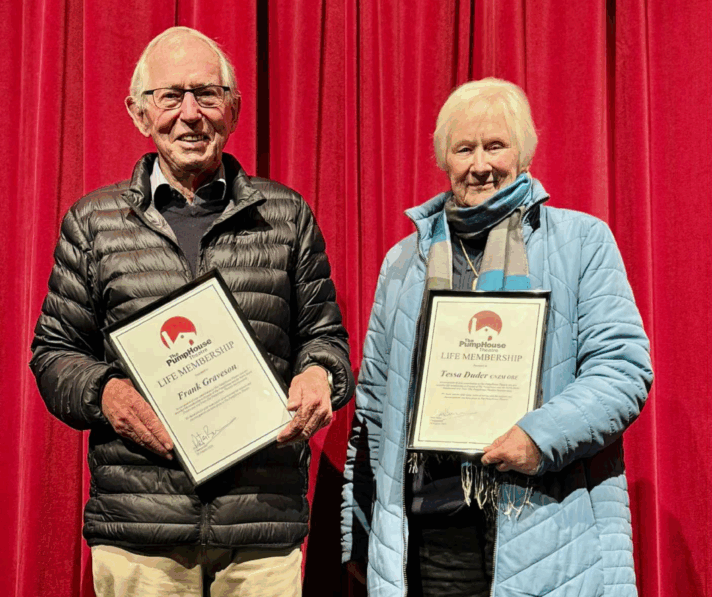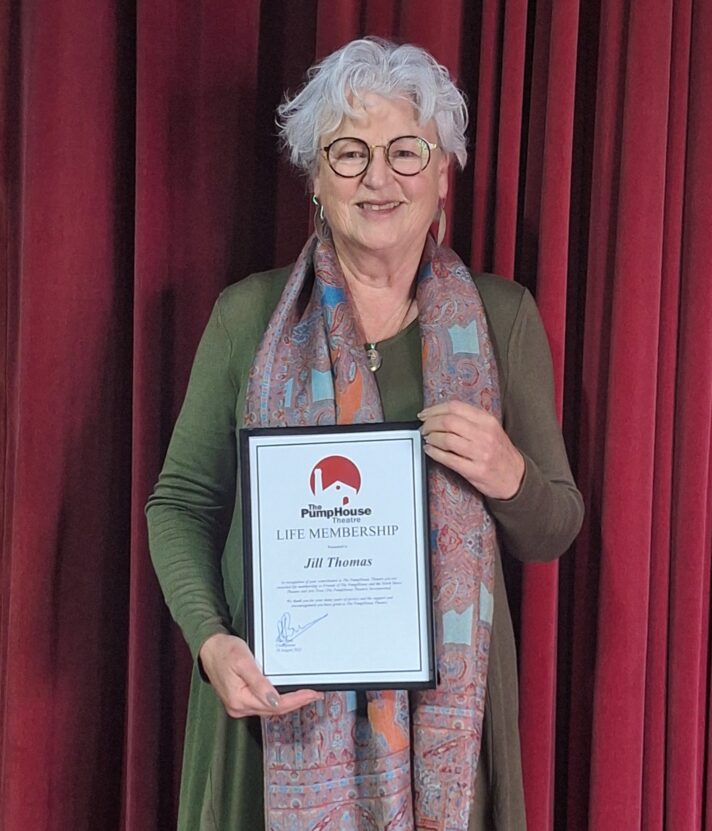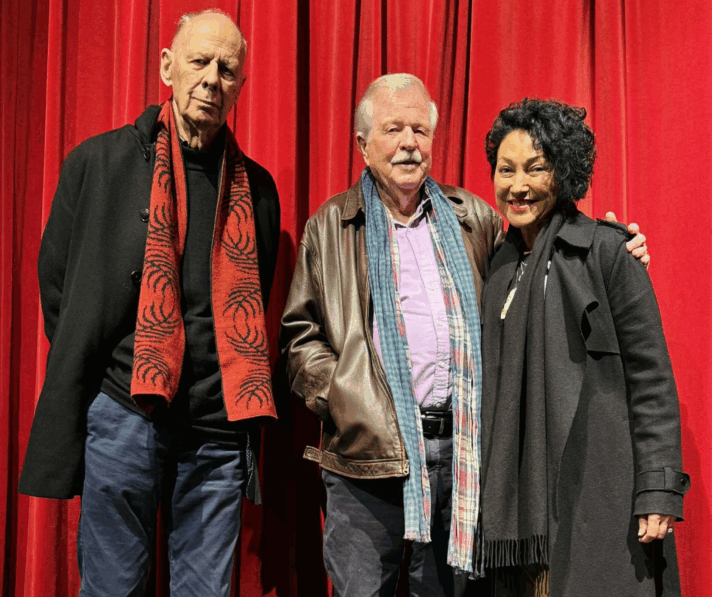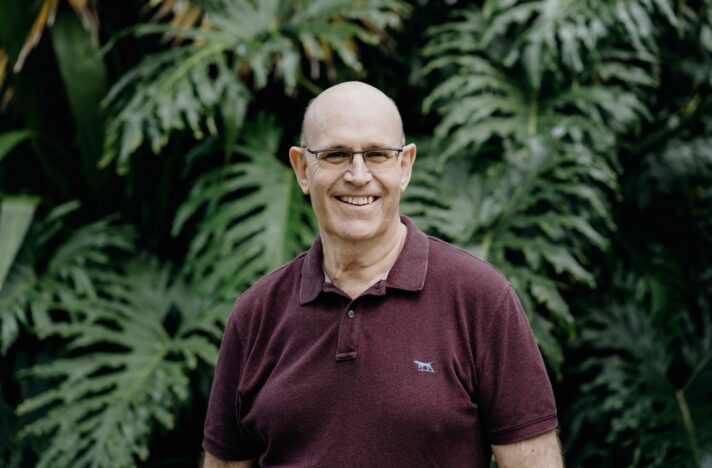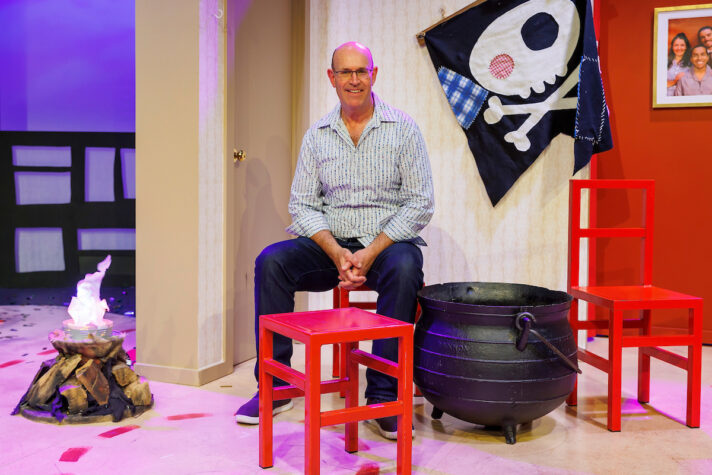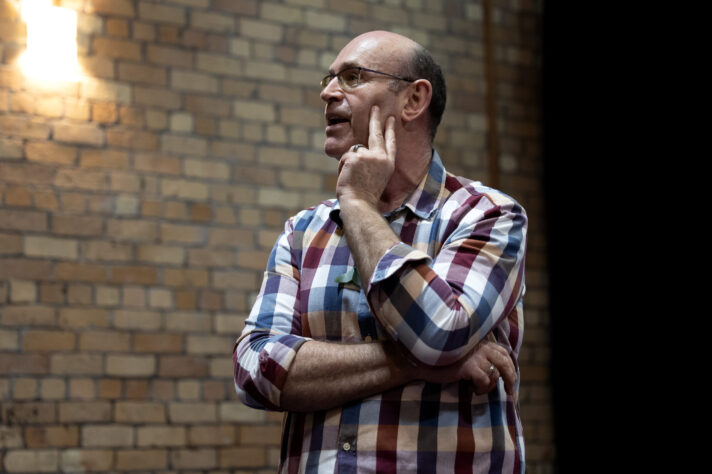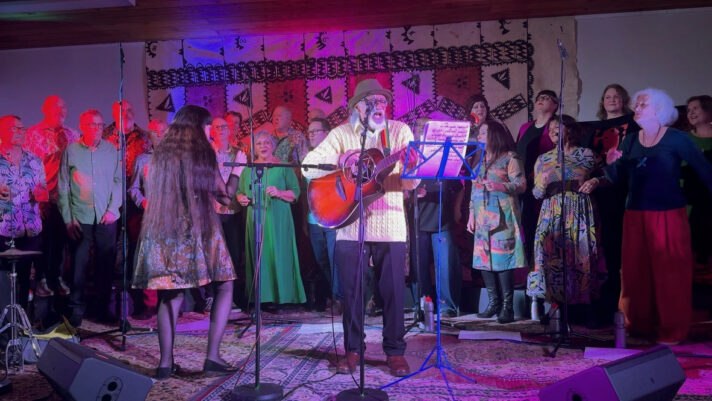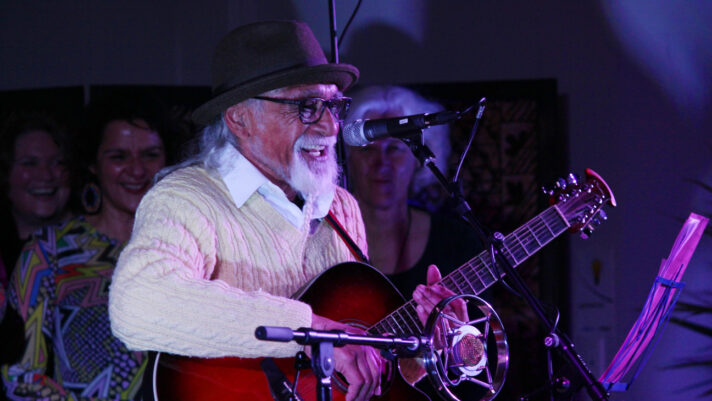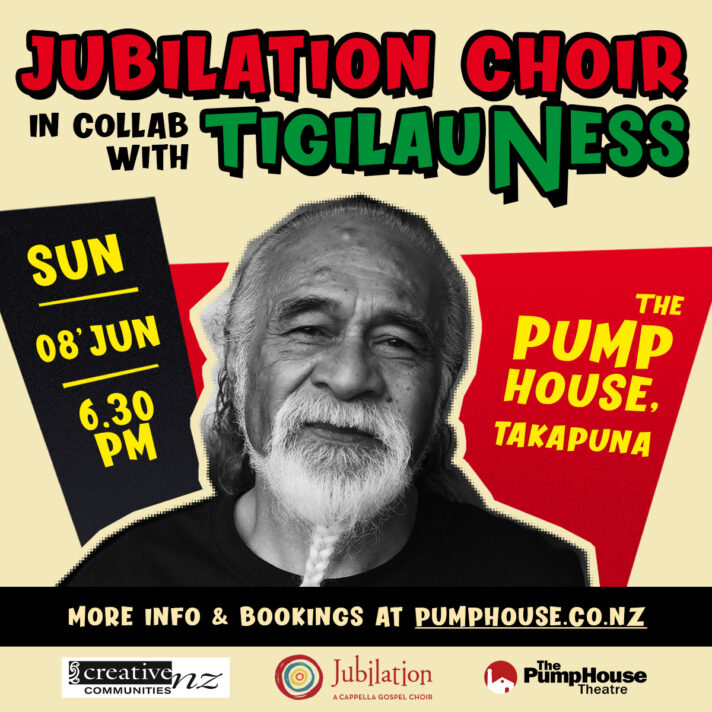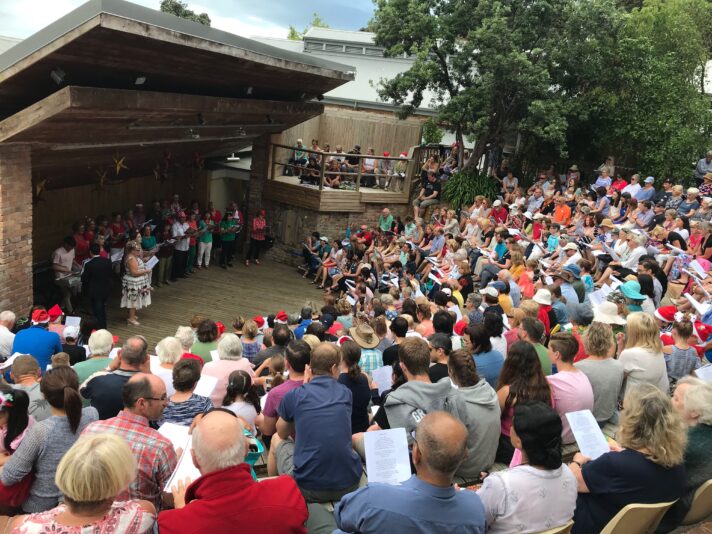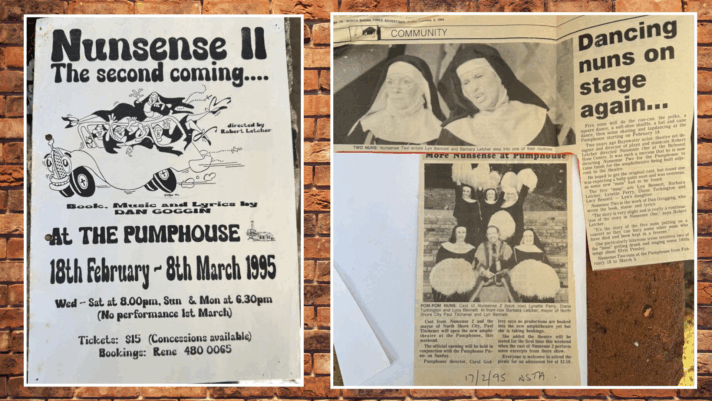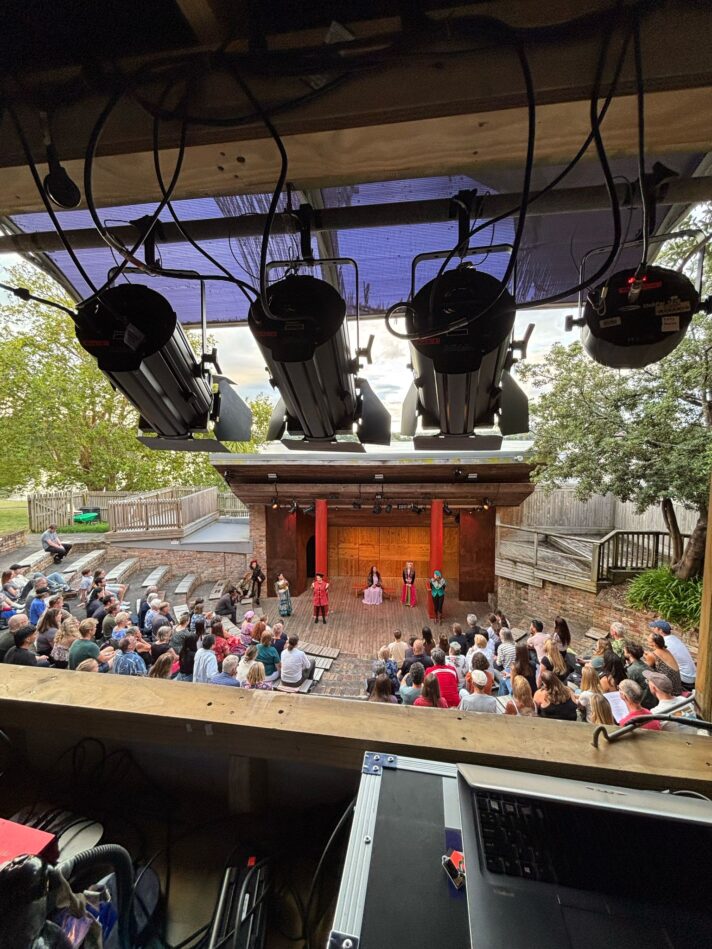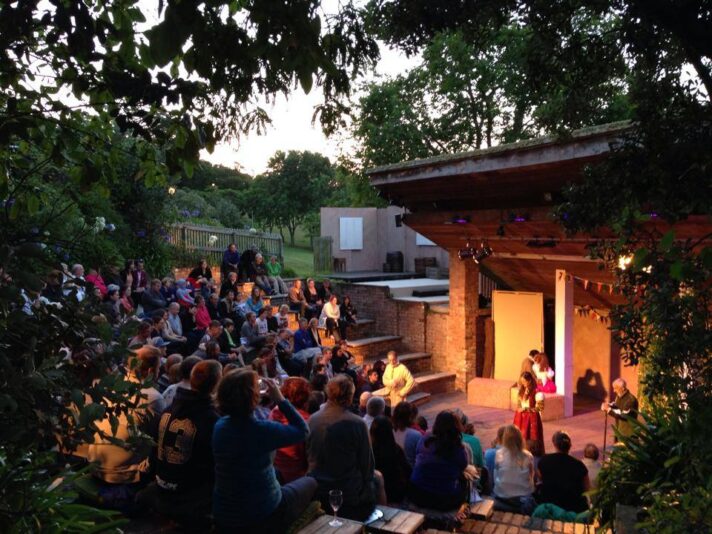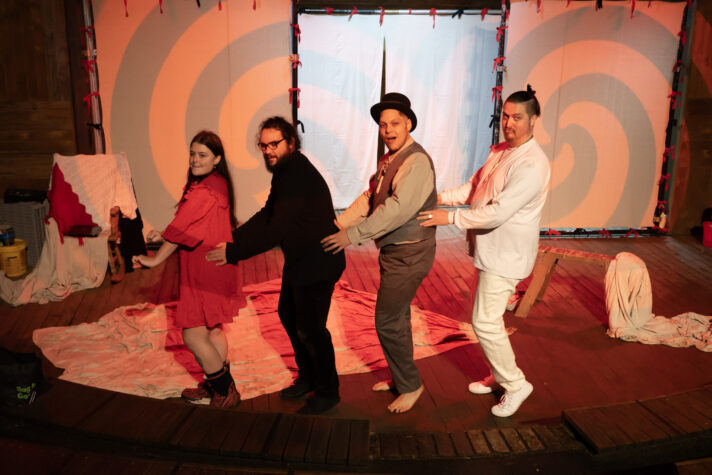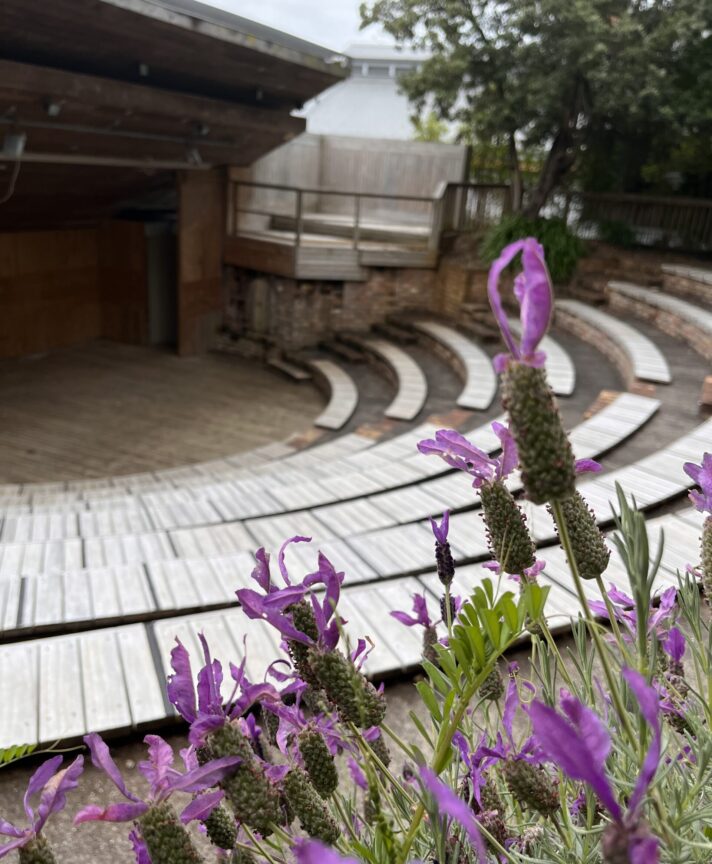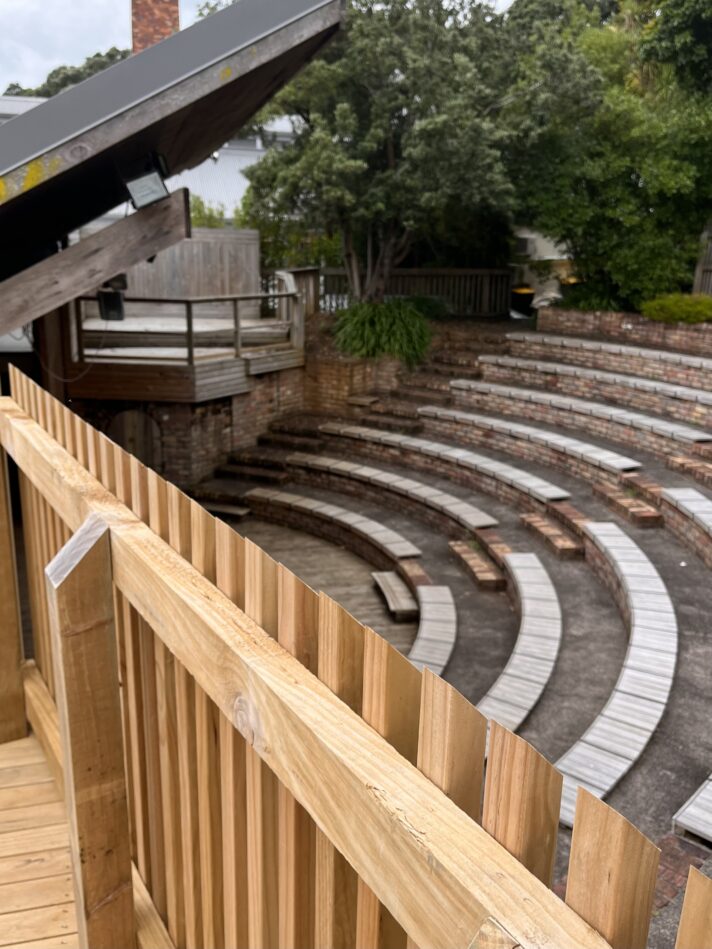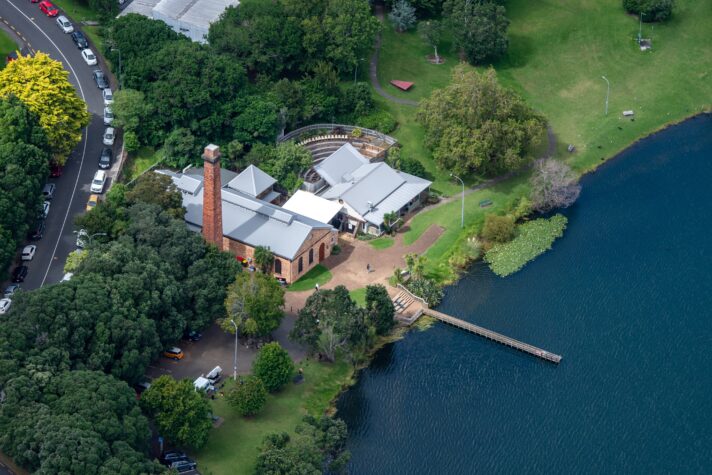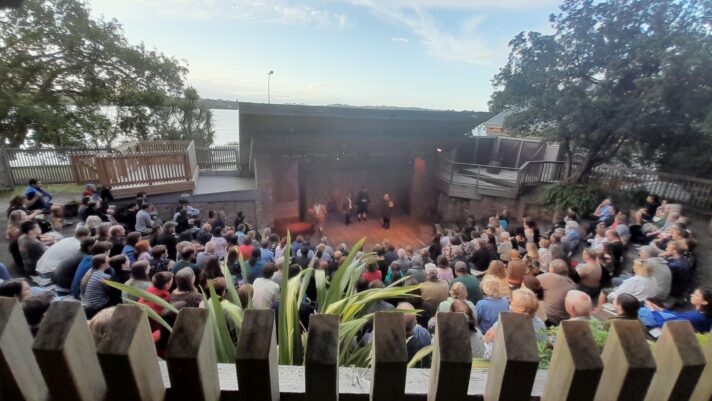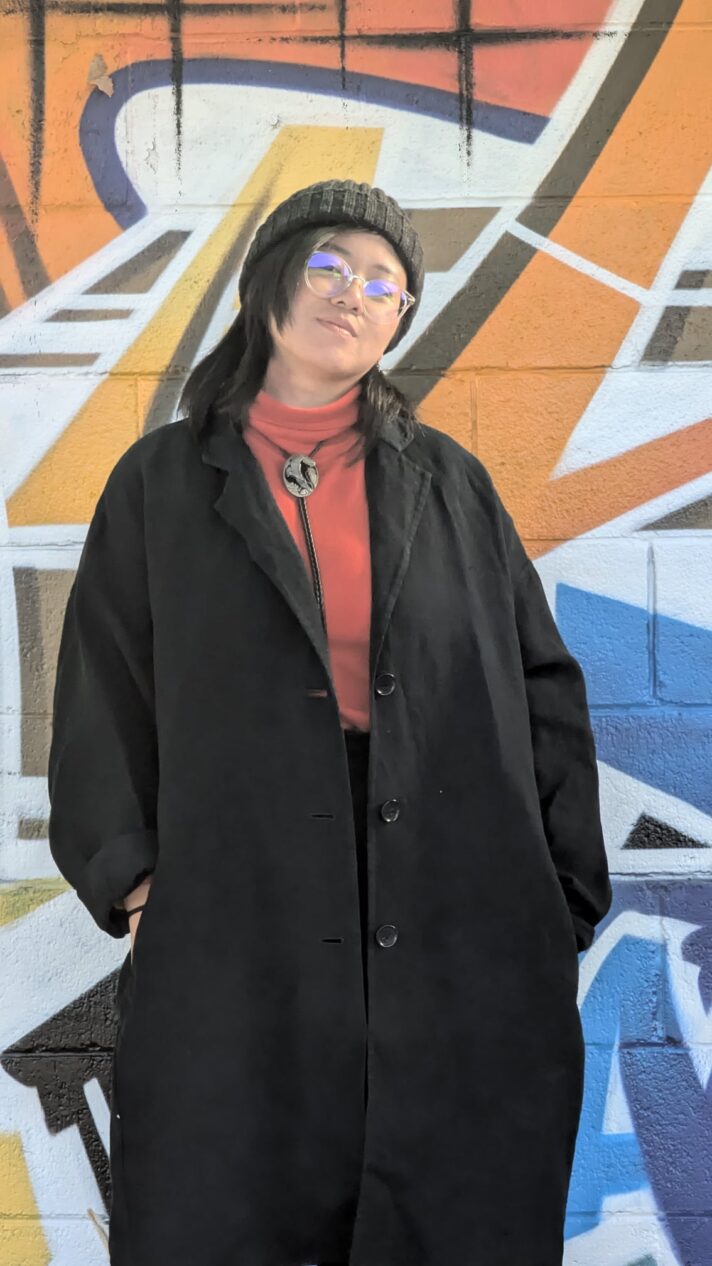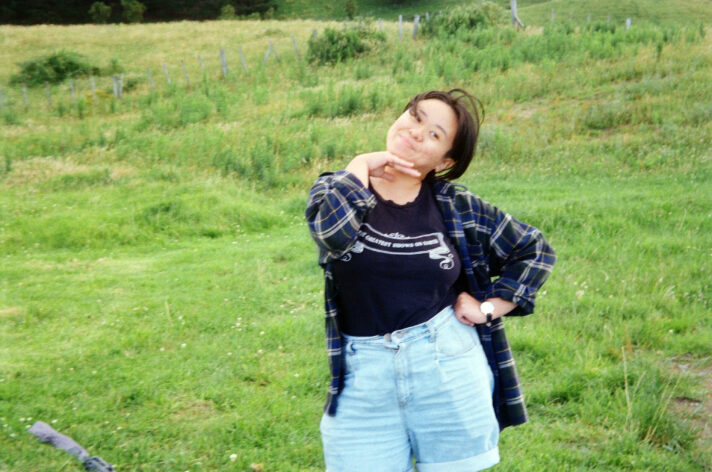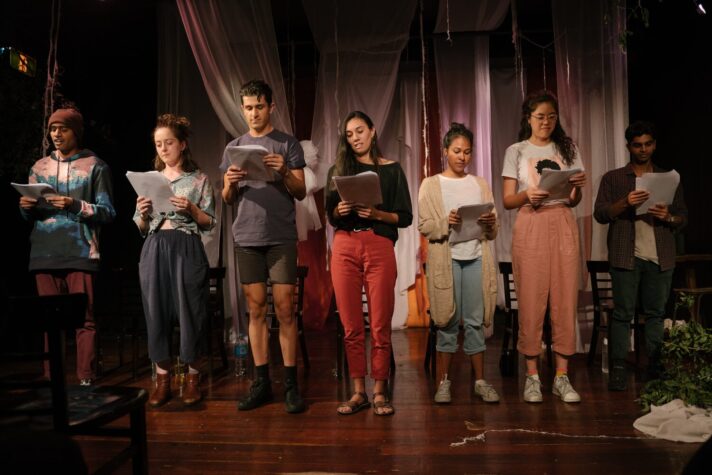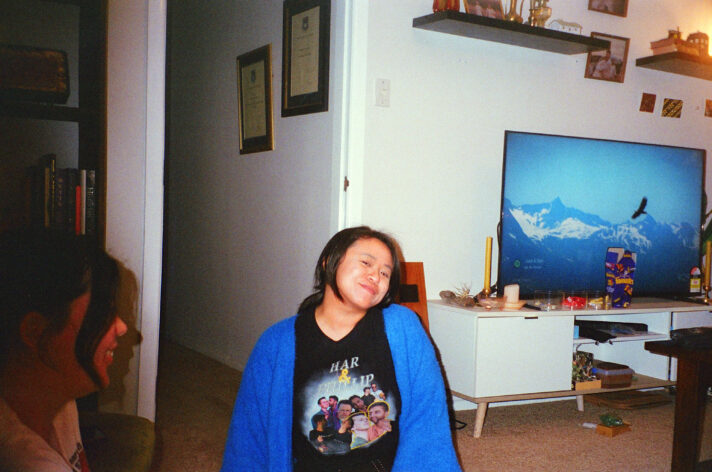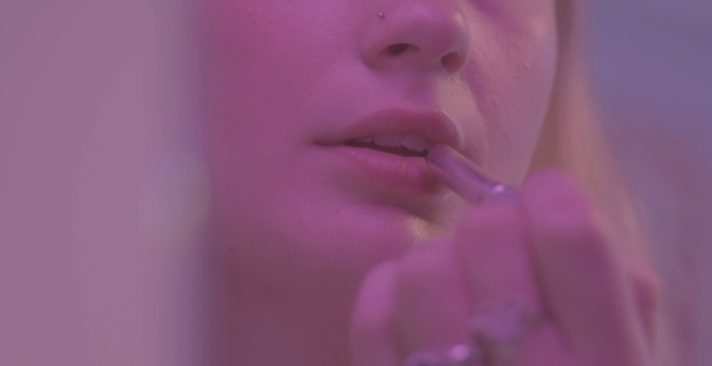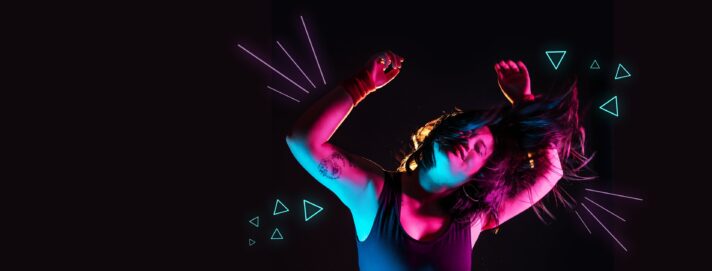The amphitheatre that raised a thousand actors!
Shoreside Theatre’s Shakespeare in the Park has never just been about the plays; it’s been about the people who return, summer after summer, to make theatre under the open sky. As the PumpHouse Outdoor Amphitheatre celebrates 30 years as the home and beating heart of these productions, we look back with Craig Serventy, a long-time Shoreside Theatre actor and director whose creative journey is deeply intertwined with our iconic space.
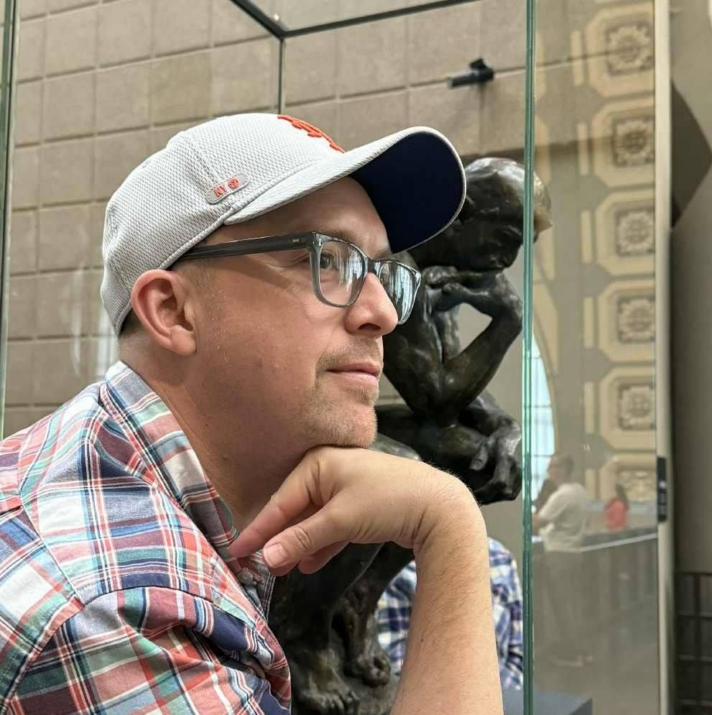
Craig Serventy
Tell us a bit about yourself and your history with Shoreside Theatre? How did it all begin for you?
CRAIG: Hi! I am Craig Serventy, Former Shore Boy, theatre practitioner and the least likely Shakespearean actor of the modern age. I did shows with Shoreside Theatre from 1999 till 2018. I think I have probably been on stage with Shoreside more times than any other member to date. In addition to stinking up the stage I have done everything from front of house, stage management, choreography (dance and fight) all the up to and including directing. My first show was Henry V and I played the Constable of France with a French accent so bad I am surprised the French Government didn’t bring me up on charges. My last show was “Outside Edge”.
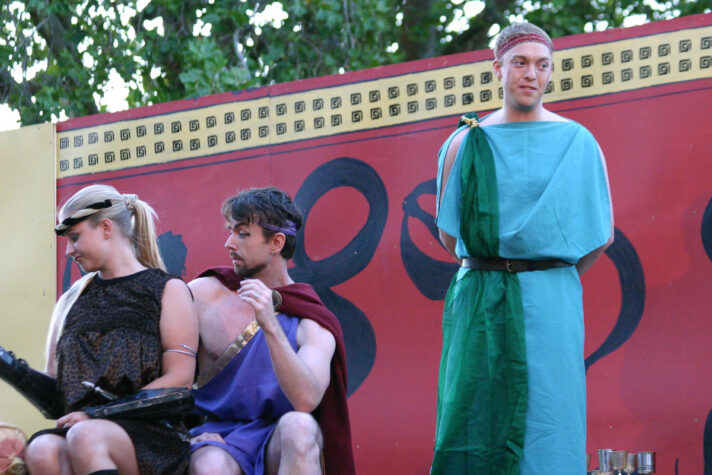
Craig performing in A Midsummer Night’s Dream (2005)
What’s your favourite memory of Shakespeare in the Park?
CRAIG: Just one? That’s like asking which of your kids you love the most! Obviously the youngest. They’re so gosh darn cute and can do no wrong. But on threat of harm I’d say the people and by extension, meeting my wife, Amy has to rank pretty highly. Co-Directing with James Bell, what was at the time the most financially successful show Shoreside had done to date felt like an accomplishment. It’s funny how when you try and remember THE favorite memory, the first thing that came to my mind is the applause and the audience looking back at you with life in their eyes. You did something and made them feel a certain way. Be it happy or sad, joy or anger. You did that. That’s pretty special.
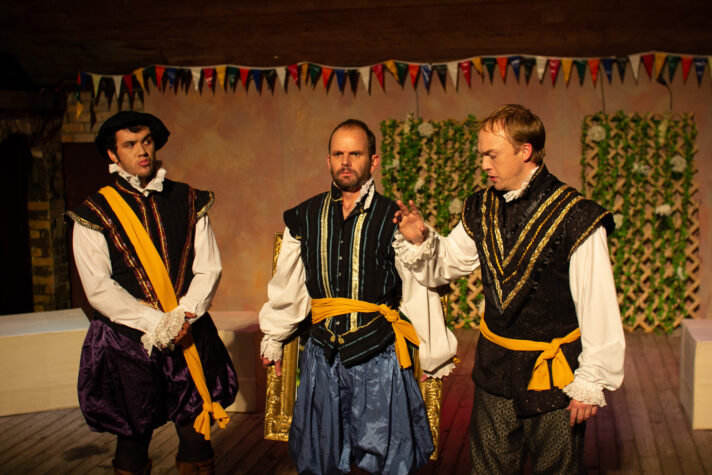
Mark Wilson, Jason Moffatt and Craig in Much Ado About Nothing (2014)
You’ve acted in and directed many productions – which play or role holds the most meaning for you, and why?
CRAIG: Directing shows is such hard work, if they go well the cast gets all the credit, when they go bad the director gets the blame. So while I have nothing but love and respect for everyone in and who made the two shows I officially got director credit on such a success, my favorite role would probably be as Edmund in Shoresides 2nd King Lear production. It was my first villainous role and I just chewed scenery. I must have been a nightmare for everyone else on stage with me because I was in a wholly different show. Breaking the 4th wall, making people in the front row shudder with revulsion, which at least on this occasion, was intentional. Good cast and a great show.
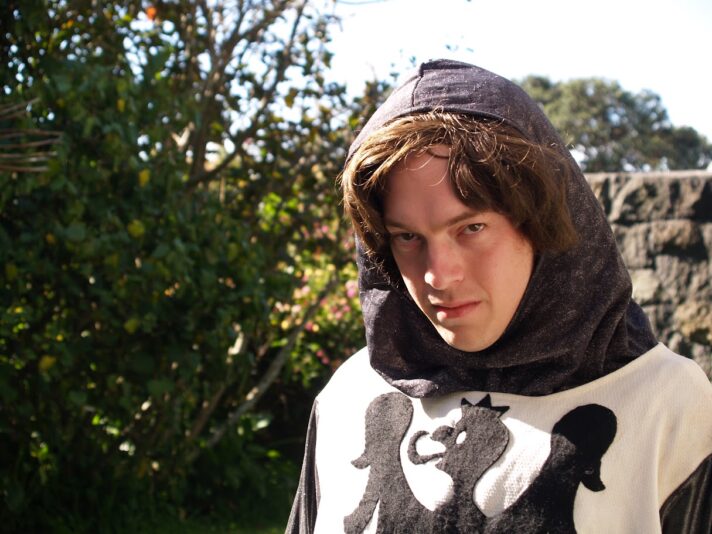
Craig as Edmund in Shoreside’s 2008 King Lear
What makes performing Shakespeare outdoors, and in this Amphitheatre specifically, so special?
CRAIG: Performing in the open air, under the stars, in the Amphitheatre is a magical experience. Its questionable acoustics, the threat to life and limb stairs and towers. Seating that 10 out of 10 chiropractors would not endorse. I mean, I like a bit of danger in my life but there have been times I thought that stage was actively trying to hurt me. Auckland’s famously reliable and predictable weather threatening to ruin a good night out. The North Shore hospital life flight helicopter doing its level best to pull focus. But, I wouldn’t have it any other way. Shakespeare at the Pumphouse Amphitheatre goes together like cheese on crackers…with WINE!
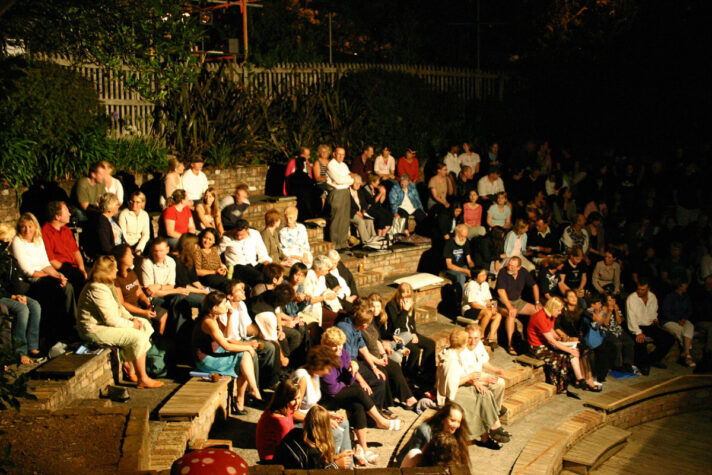
An audience enjoying A Midsummer Night’s Dream on a balmy summer evening in 2005
Any moments of beautiful chaos that you want to share? (Weather disasters, missed cues, animals, audience surprises…)
CRAIG: Gosh, where do I start!? You’d better get comfy.
The numerous moments that Tiger AKA Chairman Meow wandered onstage during performances, to gasps and “awwws” by an adoring crowd. That little upstaging, scene stealing bastard, may he rest in peace.
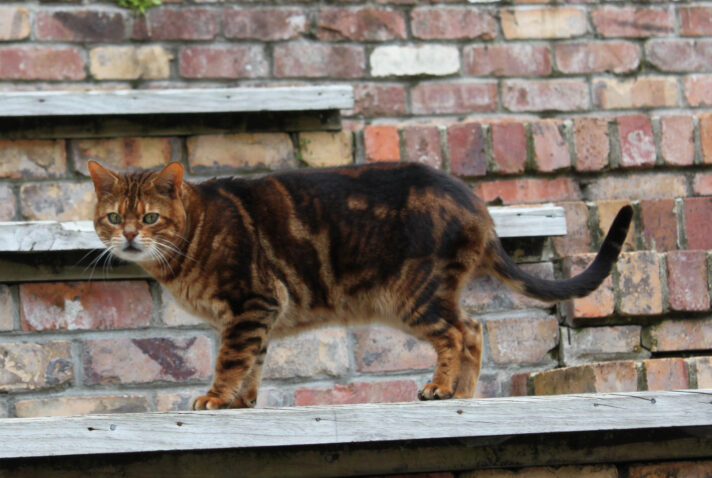
Tiger the PumpHouse Cat on the Amphitheatre seats
Speaking of animals, the night I watched a rat (prior to Tiger’s hiring) the size of a small Italian sports car run the length of the fence just under the lights with an oblivious audience wrapped in a dramatic moment.
There was the evening I was pulled over just opposite our Richard III billboard which featured my scowling face and questioned about the English longsword on the back seat of my car, and the cops only let me go when I pointed out my similarity to the guy on the poster. “That’s me, I’m Richard the turd” I protested.
The evening my brother was clocked in the head with a sword, knocked out cold and then taken to North Shore Hospital in full costume, bleeding from a head wound by a young woman reenactor clad in what can only be described as leather armour cosplaying as a mini dress. Then having to explain how the injury was sustained during a Shakespearean play and not as the Doctor was insisting was “role play” on the ACC form.
The night a member of a sister theatre company who should have known better getting their phone confiscated by Amy for filming during the show.
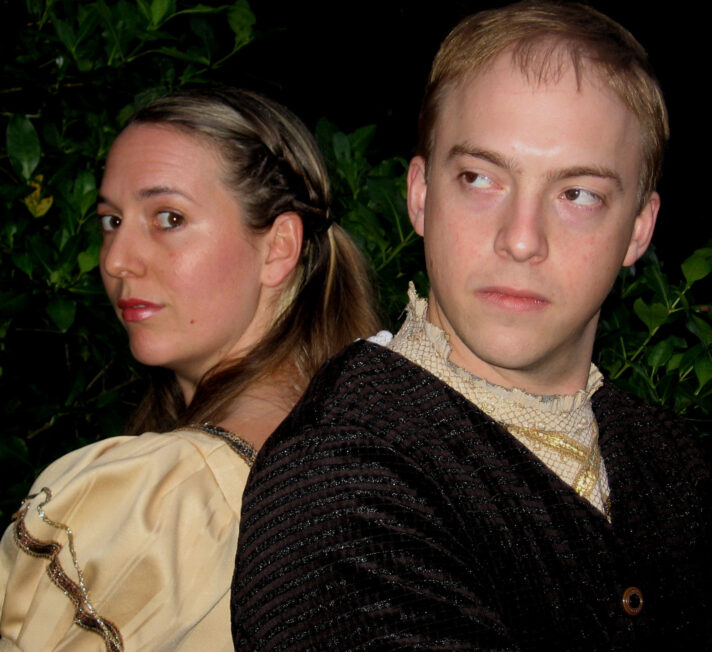
Craig as Benedick in the 2007 production of Much Ado About Nothing
Should I continue?
Oh alright, a couple more!
During the second production of King Lear on a Saturday night we’d been competing with the 21st running in the Bridge Club up the back. They had been fairly accommodating, trying to keep the noise to a dull roar. As Lear lay dying in the final moments of the show the DJ (or perhaps a vindictive sentient iPod) played the seminal classic, Tragedy by the Bee Gees. The timing couldn’t have been better.
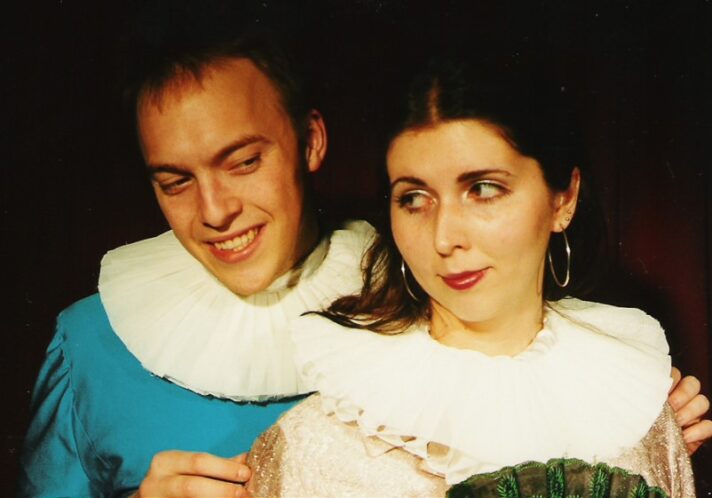
Craig in Love’s Labour’s Lost (2004)
Finally, a missed cue that will likely live rent free in my mind for the rest of my life. It was during my last Shakespeare In the Park, Love’s Labour’s Lost. I played Berowne and in the scene I had a short monologue before the Prince (played by the incredible James Jennings) was supposed to come in and we advance the plot. Except the normally as punctual as a German clock James missed his cue. Not to worry, I can vamp! So I started doing bits and pieces of other Shakespearean monologues. There’s a little Benedick from Much Ado, a smattering of Richard from Richard III but still no James. I start freestyling and the panic is starting to rise (which is bad) and before I know it I am doing the “How much do I love you, let me count the ways” bit and rhyming the numbers. I’ve gone from “bad” to creatively bankrupt.
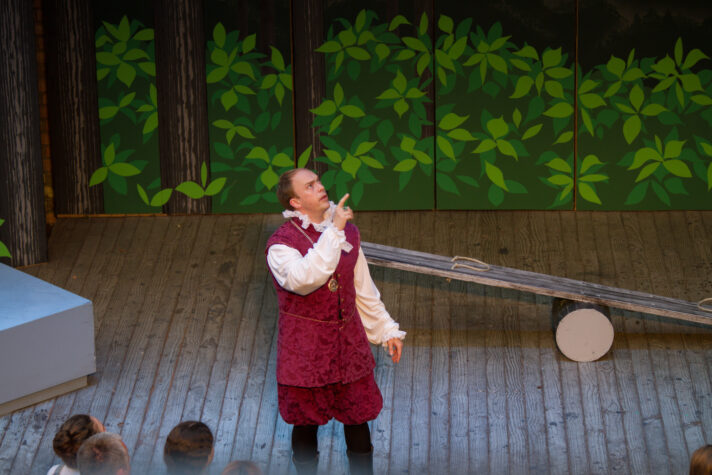
Craig in Love’s Labour’s Lost (2017)
“One, because I sound so dumb, two because your eyes are so blue”, you get the picture. By the time I get to “six” and I am rapidly losing the plot. My mind is racing, hatching plans to advance the scene without ruining the show while simultaneously reasoning that by now, surely someone has recognized that I am well off script and they are dragging James from whatever life or death situation has detained him to the left tower stairs. Then someone in the audience shouts “Seven!” To which I reply, “If my scene partner came on, it sure would be heaven”. Which gets cheers. So I continue;
“Eight, because he’s running really late”.
“Nine, there’s no way you (gesturing to the audience) are getting home on time” and finally “ten I really don’t want to have to do that again”.
The audience erupts laughing and cheering, memory tells me there was some whistling, possibly a standard “rich and famous” contract flung on stage by none other than Steven Spielberg (cannot confirm, might have made that up) and finally James enters the stage as if nothing out of the ordinary has happened. The scene goes on and finally after what felt like 3 months, finishes.
Was there a particular production that felt like a turning point for Shoreside?
CRAIG: The show that I think was a real turning point for Shoreside was the first production of Romeo and Juliet. I had done many great shows by that point with Shoreside but that first R&J production felt truly “elevated”. First of all we had this incredible cast. Just all around talent for days. We had a great vision and great direction by James, and I was also there, “directing”. Someone described me as the “fun director” and you know what? I can live with that. It was also the first show that sold out multiple nights. Sure, we’d had sell out final nights in the past but not the whole final week. We did so well and were received so positively, I think there was some semi-serious talk about extending the season. It felt in that moment, to me at least, that we had turned a corner and had really become a mainstay of the North Shore, nay Auckland, theatre scene.
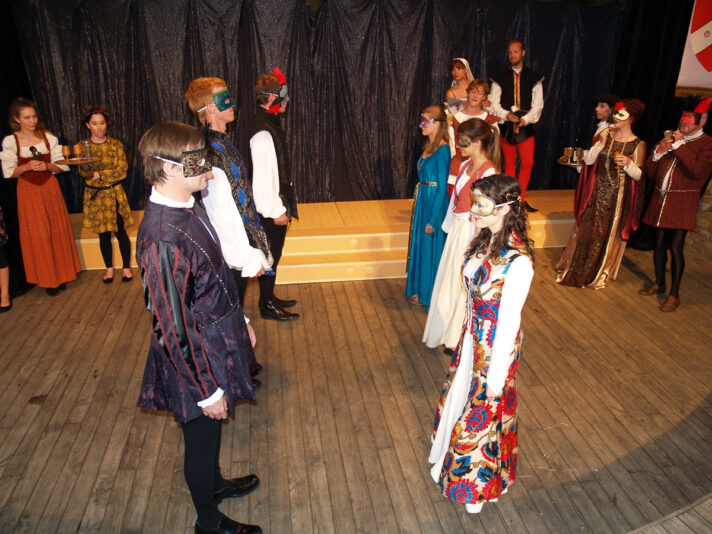
Shoreside Theatres production of Romeo & Juliet (2009) directed by Craig and James Bell
A few months later a few of us attended an event at the Auckland Library in celebration of the 400 anniversary of Shakespares death, Michael Hurst was there, reading monologues and among the artifacts were our R&J posters. I think about this time we also noticed that the audiences were younger. They were more engaged, they gasped when Romeo swallowed the poison, there were cries when Juliet took a dagger to her chest. It was great stuff
What do you miss most about making theatre in Auckland and at The PumpHouse?
CRAIG: The Pumphouse is an incredible venue, honestly just phenomenal. The Ampitheatre can take some work to get the most out of it but if you can perform on that stage, you can perform on any stage, anywhere in the world. I miss it as much as anything about NZ, even Moustache cookies and Burger Fuel.
Hindsight being 20/20 and not recognizing what you have in your backyard, after living in London for the past 7 years and seeing all manner of shows from AmDram to West End mega musicals, I can confidently say it’s one of the most unique theatre experiences you could have.
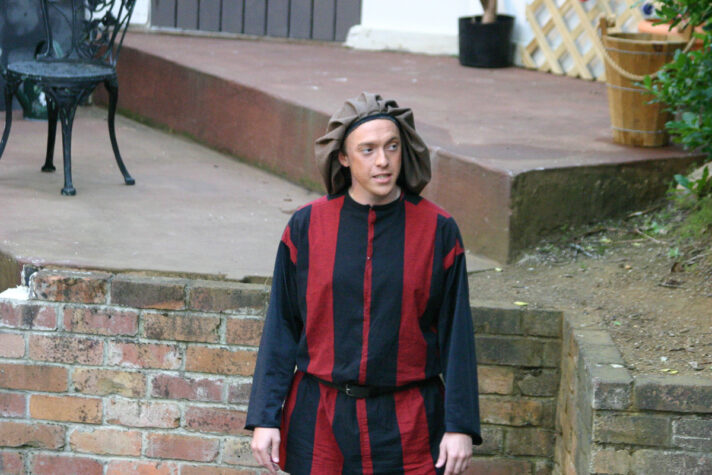
Craig in Twelfth Night (2006)
If you could go back and give your younger self one piece of advice before an opening night in the Amphitheatre, what would it be?
CRAIG: Oh man, just one piece? Okay. It’s a marathon, not a sprint. Take your time. 🙂
Finish this sentence: “A perfect night of Shakespeare in the Park always includes…”
CRAIG: Balmy nights under the stars, a suitable picnic, geese gently serenading you with their beautiful evening song. Going for a post show swim in the lake, dodging eels. What’s not to miss? All of it. Magic.
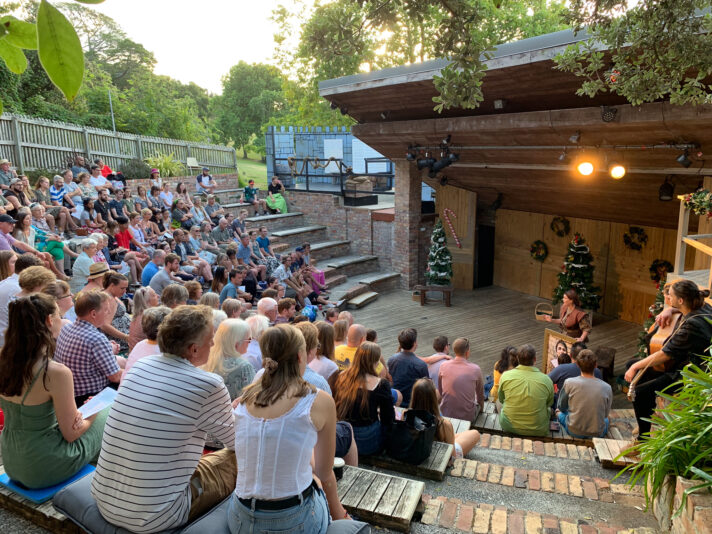
The PumpHouse Outdoor Amphitheatre
Click here to see the throwback photos Shoreside Theatre have been posting to commemorate 30 years of Shakespeare!

